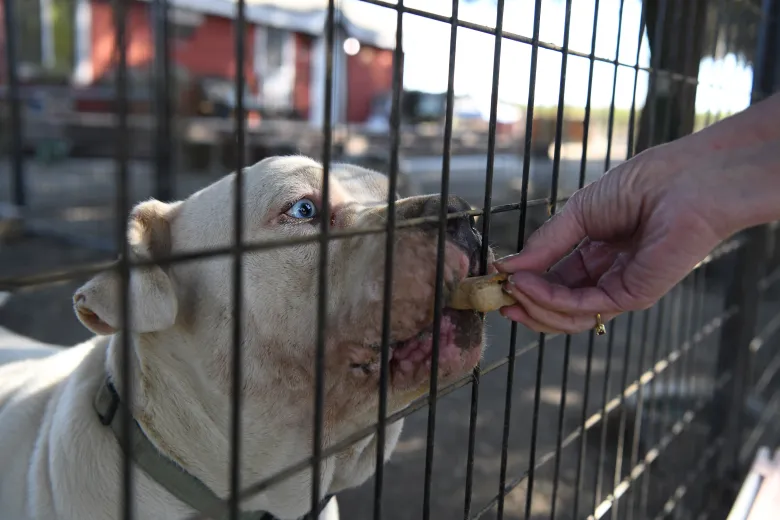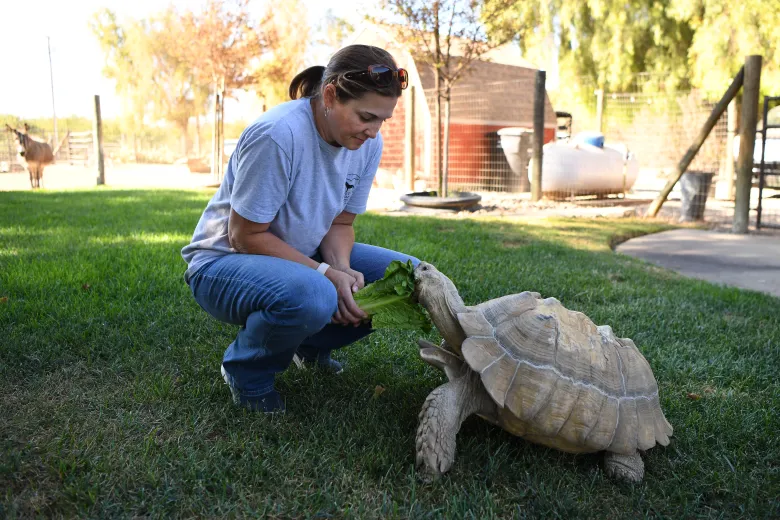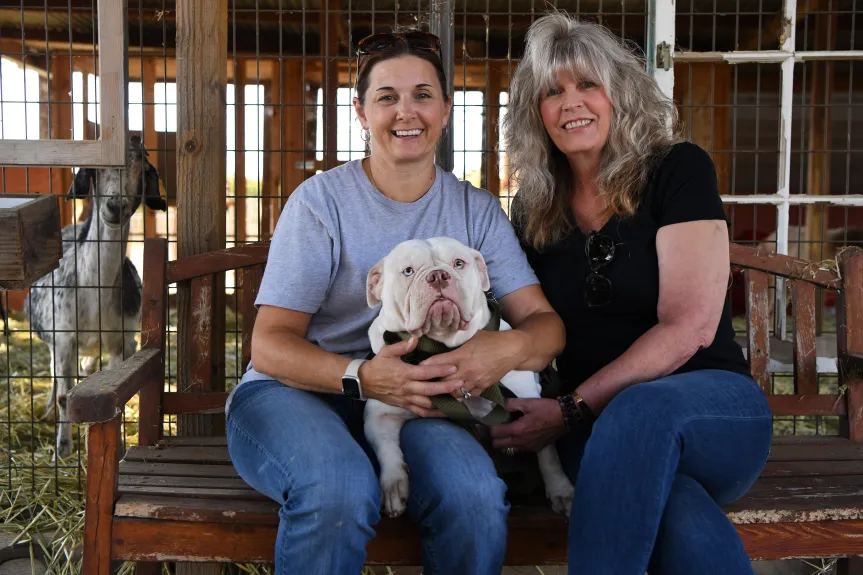Much has been written about the ridiculous prices in the U.S. healthcare system. What’s lesser known is that animal healthcare has its own sky-high costs.
“Generally speaking, it’s $600 to $700 to spay a cat or, if you’re going to a really quality place, it might be $900 to $1,000,” says Lisa Williams. “It can cost $1,200 to spay one female dog, easily. It’s a lot of money. Some people do it, and many don’t – often just because they can’t afford it.”
Williams is the cofounder and medical programs director for Paws in Need, a San Ramon-based nonprofit devoted to narrowing the gap between impossible and affordable veterinary care. Serving cats and dogs in the Tri-Valley area, Paws in Need offers small grants to pet owners to help defray the costs of crucial medical services: spaying and neutering, primarily, but also medications and surgical procedures like tooth extractions and tumor or limb removals.
Founded in 2013, the organization has helped provide vet care to more than 7,000 dogs and cats suffering from injury, disease, neglect or abandonment. The all-volunteer staff targets feral animals – trapping, treating and either rehoming or releasing them (it’s hard to rehome a truly wild cat). It also helps out struggling pet owners who couldn’t budget money for things like pet food, vaccines, flu medication and flea prevention.

“Even though there’s a lot of money in the Bay Area, there are still a lot of people who struggle,” says Williams. “They don’t necessarily have a designer Frenchie dog they paid $5,000 for. They have a dog adopted from a rescue or a kitten they found on the street. We help those people every single day.”
Paws in Need began as a passion project by three friends to spay and neuter animals in Contra Costa and Alameda counties. The idea was to prevent animals from breeding and inbreeding until their populations explode and overwhelm shelters. Explode by how much? The Feral Cat Coalition of Oregon actually has an equation for that: “The mathematical calculation, based on 1 unaltered cat and all her offspring having a litter of 4 each over a 10-year period, results in a startling 1,398,101 cats.”
“We wanted to keep animals from being born,” says Williams, “rather than being born, put in a shelter and 80 percent of the time – depending on the shelter – euthanized.”
It turns out spaying and neutering has health benefits for the living animals, too. If pet owners don’t have their pets undergo these procedures, they are gambling to be hit at some point in the future with major medical bills.
“(Animals are) not going to get testicular cancer if they don’t have testicles, and they’re going to get fewer urinary-tract infections,” Williams says. “If they’re females, there’s a deadly infection called pyometra, and with people who don’t spay their female dogs, we often get that call at the pyometra phase. If we would’ve known about that dog and gotten her fixed, there would be no infection in her uterus, and she wouldn’t be on the brink of death.”

As Paws in Need has grown, so has its mission. The organization now helps rehome abandoned and neglected animals, answering direct calls from the public – something rare in the bureaucracy of the animal-welfare world – and wrangling personal connections with low-cost veterinarians, animal-control officers and managers of rescues and sanctuaries.
This year, for instance, Paws in Need helped remove a sweet, thick-as-a-brick, two-year-old bulldog named Crystal from an overcrowded backyard kennel in Contra Costa County. “We got her to a vet, who said her ear infections were really bad, and she wasn’t medically ready for adoption,” says Williams. “We got the severe infections treated, got her fleas under control and got her inoculations.”
Crystal wound up the happy resident of the Coyote Crossing Ranch Animal Rescue and Sanctuary in Byron, before eventually being adopted into her forever home.
“Paws in Need and organizations like them are very necessary. They help out smaller groups, like myself. Without their help in the beginning, I would’ve been completely underwater,” says Sonnet Rodrigues, founder of Coyote Crossing. “Also, I’ve sent quite a few people their direction who needed help with spays and neuters.”
It’s very difficult nowadays for many people to go to a vet – even the low-cost ones aren’t really that low-cost, says Rodrigues.
“Paws in Need helps when it’s a special circumstance, like an animal needs an eye taken out,” she says. “It’s really sad when you see a lot of these animals that are suffering, but the people don’t have money. They don’t even have the alternative of taking an animal and having them put down, because that is going to cost you hundreds of dollars.”
